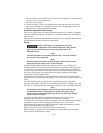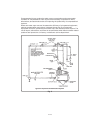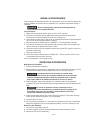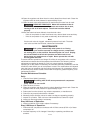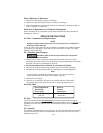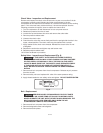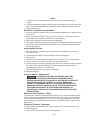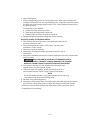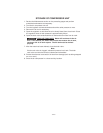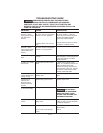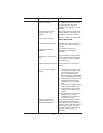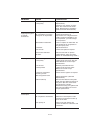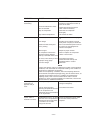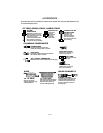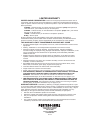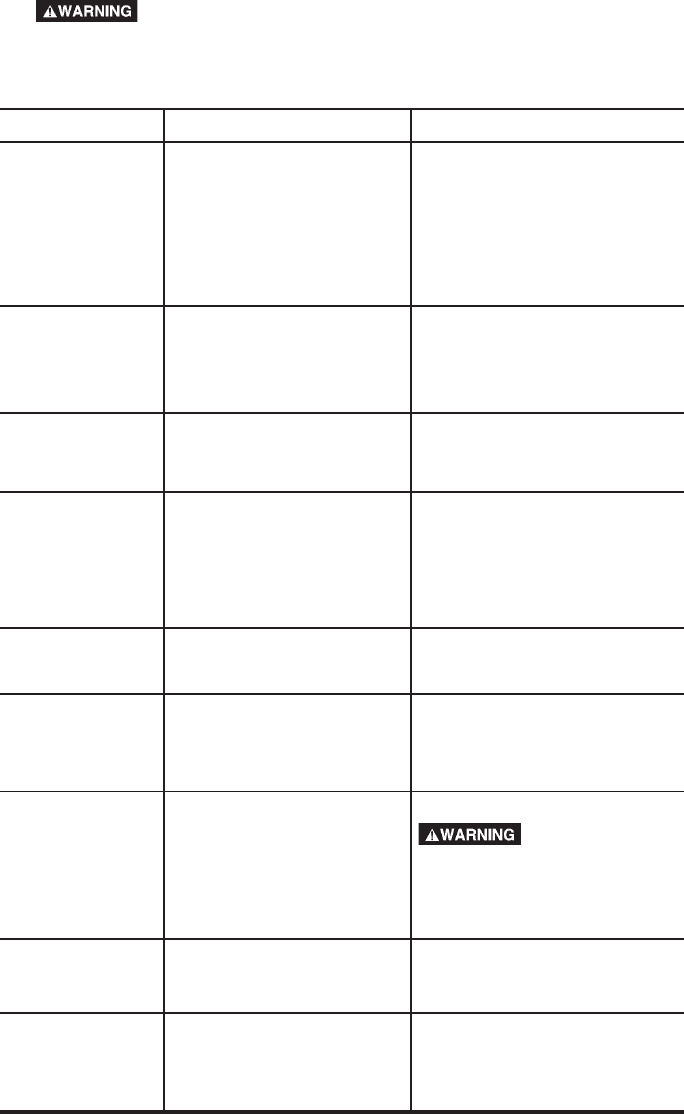
20-ENG
CAUSE
.
Air leaks in air tank
or at air tank welds.
PERFORMING REPAIRS MAY EXPOSE VOLTAGE
SOURCES, MOVING PARTS OR COMPRESSED AIR SOURCES.
PERSONAL INJURY MAY OCCUR. PRIOR TO ATTEMPTING ANY
REPAIRS, UNPLUG THE AIR COMPRESSOR AND BLEED OFF ALL AIR
TANK AIR PRESSURE.
PROBLEM
Air tank must be replaced.
DO NOT DRILL
INTO, WELD, OR OTHERWISE
MODIFY AIR TANK. IT WILL
WEAKEN. THE AIR TANK CAN
RUPTURE OR EXPLODE.
CORRECTION
TROUBLESHOOTING GUIDE
Excessive air tank
pressure - safety
valve pops off (units
with ON-AUTO
switch).
Excessive air tank
pressure - safety
valve pops off (units
without ON-AUTO
switch).
Air leaks at fittings or
hose.
Air leaks at or inside
check valve.
Air leaks at pressure
switch release valve
during running.
Continuous air
relieving from
pressure switch
release valve after
shut off.
Air leak from safety
valves.
Squealing sound.
Pressure switch does not shut
off motor when air compressor
reaches “cut-out” pressure.
Pressure switch “cut-out” too
high.
Pressure switch does not shut
off motor when air compressor
reaches "cut-out pressure".
Tube fittings are not tight
enough.
Malfunctioning or dirty check
valve.
Malfunctioning pressure switch
release valve.
Malfunctioning check valve.
Damaged air tank.
Possible malfunctioning in
safety valve.
Loose belt.
No oil in the air compressor
pump.
Move the pressure switch lever to
the “OFF” position. If the unit
doesn’t shut off, and the electrical
contacts are welded together,
replace the pressure switch.
Contact a Service Center to check
and adjust, or replace switch.
Pressure switch must be replaced.
Tighten fittings where air can be
heard escaping. Check fittings with
soapy water solution. DO NOT
OVER-TIGHTEN.
A malfunctioning check valve
results in a constant air leak at the
pressure release valve when
pressure is in the air tank and the
air compressor is shut off. Remove
and clean or replace check valve.
DO NOT OVER-TIGHTEN.
Remove and replace the release
valve.
Replace check valve.
Operate safety valve manually by
pulling on ring. If a valve still leaks,
it should be replaced.
Adjust belt tension. (See Belt
Replacement.)
Add oil.



